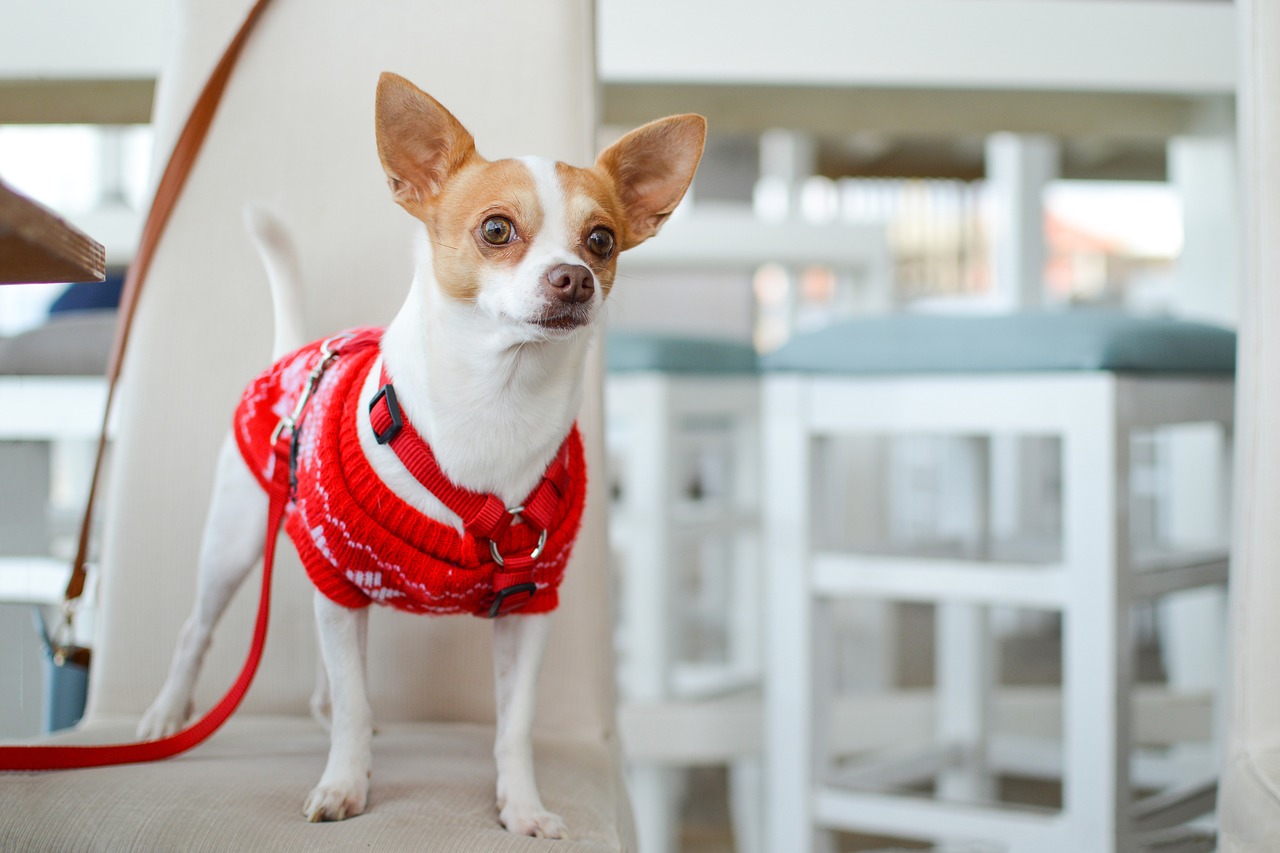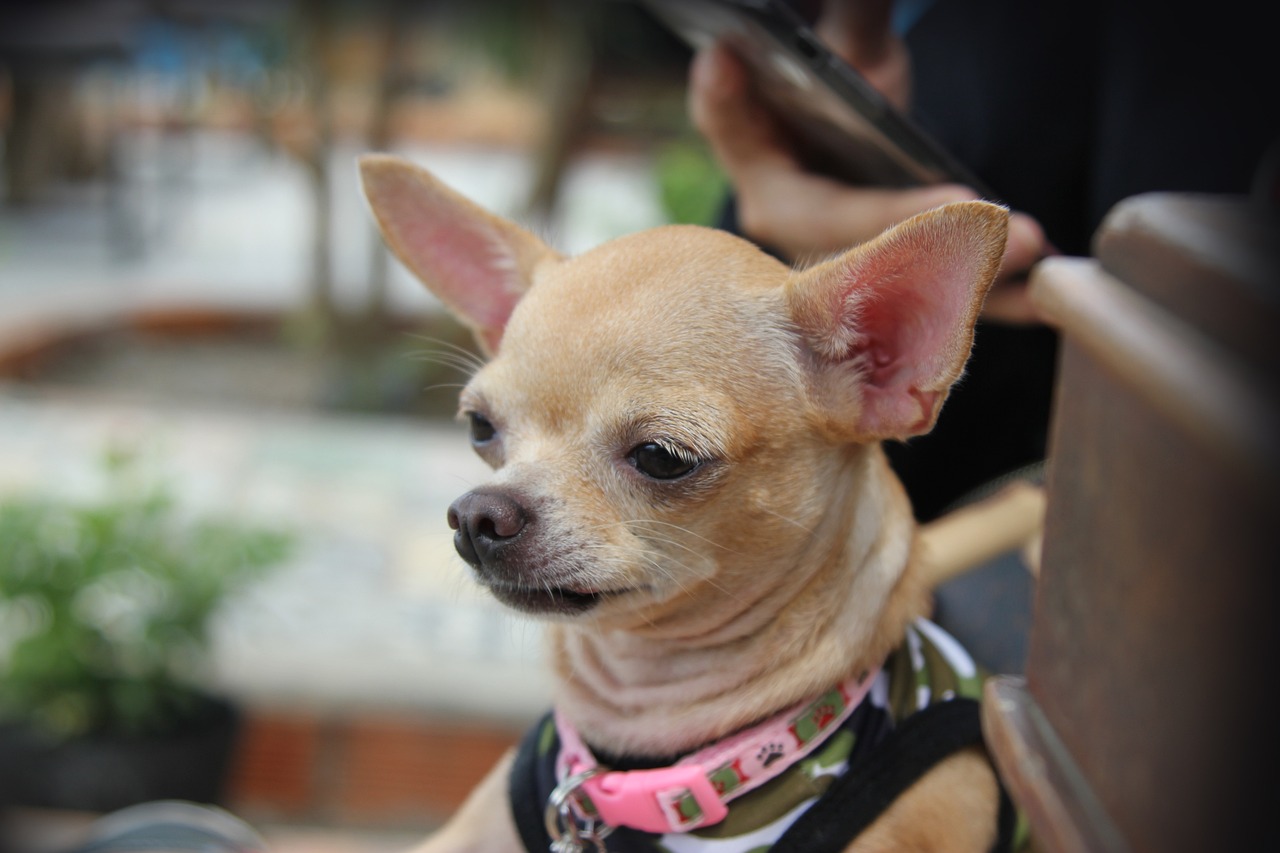Chihuahuas, known for their diminutive size and spirited personality, are among the most popular dog breeds. Despite their small stature, they are not immune to weight gain, which can be detrimental to their health, exacerbating issues such as joint problems, heart disease, and respiratory difficulties. Weight management is crucial for Chihuahuas to ensure a long, healthy, and happy life. In this comprehensive 1,500-word article, we’ll explore seven key tips for helping your Chihuahua lose weight, focusing on dietary changes, exercise routines, and overall wellness strategies. Each tip will be elaborated on in detail, providing practical and effective strategies to manage your Chihuahua’s weight.
Cutting Down on Carbohydrates
Reducing carbohydrate intake is vital in a weight loss plan for Chihuahuas. Many dog foods on the market are high in carbohydrates, which can lead to unnecessary weight gain. For a Chihuahua, a diet lower in carbs and higher in protein can be beneficial. Carbs often come from fillers like corn and wheat in dog food, which offer little nutritional value and can contribute to obesity. Instead, choose dog foods that list meat as the first ingredient and are formulated with fewer carbohydrates. When it comes to treats, opt for low-carb options and avoid human foods high in sugars and starches. As with any dietary change, introduce the new food gradually to avoid gastrointestinal upset.
Increasing Protein Intake
Protein is essential in maintaining lean muscle mass and can aid in weight loss. For Chihuahuas, high-quality protein sources are vital. Look for dog food where real meat, such as chicken, beef, or fish, is the primary ingredient. Increased protein can help your Chihuahua feel fuller for longer, reducing the urge to overeat. However, it’s important to balance their diet and ensure they are not consuming excessive amounts of protein, particularly if they have underlying health issues. Consult with a veterinarian to determine the appropriate amount of protein for your Chihuahua’s diet.
Replacing Kibble with Low-Calorie Veggies
Integrating low-calorie vegetables into your Chihuahua’s diet can help reduce their overall calorie intake while still providing them with essential nutrients. Vegetables like green beans, carrots, and broccoli are healthy additions that can be mixed with their regular kibble. This not only lowers the calorie density of their meals but also helps to keep them satiated. Ensure that the vegetables are cooked (steamed is best) to aid in digestion, and introduce them gradually to your Chihuahua’s diet.
Regular, Appropriate Exercise
Exercise is as crucial for Chihuahuas as it is for any other dog breed. However, due to their small size, their exercise needs differ. Daily walks and playtime are essential for keeping them active and helping them burn calories. Tailor the exercise to suit your Chihuahua’s age, health, and energy level. Short, frequent walks are better than long, exhausting ones. Engaging them in interactive play indoors can also help keep them active.
Smaller, More Frequent Meals
Feeding your Chihuahua smaller, more frequent meals throughout the day can help in managing hunger and boosting metabolism. Instead of one or two large meals, consider dividing their daily food portion into three or four smaller meals. This can prevent overeating and help in better digestion. Ensure you’re measuring their food accurately to maintain consistent portion control.
Healthy Treats and Chews
Treats and chews can significantly contribute to weight gain if not monitored. Opt for healthy, low-calorie treat options for your Chihuahua. Consider fruits and vegetables that are safe for dogs, like small pieces of apple or carrot. Be mindful of the quantity of treats given and ensure they make up only a small percentage of your Chihuahua’s overall calorie intake.
Regular Health Check-ups
Regular check-ups with the vet are vital in managing your Chihuahua’s weight. Your vet can guide the ideal weight for your specific Chihuahua, suggest dietary changes, and check for any underlying health issues that might contribute to weight gain. They can also recommend a tailored exercise regimen and monitor your Chihuahua’s progress.
Managing your Chihuahua’s weight is an important aspect of ensuring their overall health and longevity. By implementing the tips discussed, you can help your Chihuahua achieve and maintain a healthy weight. It’s important to remember that each dog is unique, and what works for one may not work for another. Consult with your vet to tailor these tips to your Chihuahua’s specific needs. With patience, perseverance, and careful management, you can help your Chihuahua lead a healthier and more active life.
How to Know if Your Chihuahua Needs to Lose Weight
Recognizing when your Chihuahua needs to lose weight is crucial for maintaining their health and well-being. Chihuahuas, while small and generally less prone to obesity than larger breeds, can still suffer from excess weight gain. This weight gain can lead to various health issues, including joint problems, cardiovascular diseases, and decreased lifespan. Therefore, Chihuahua owners need to be vigilant about their pet’s weight. This article will explore key indicators and methods to help you determine if your Chihuahua might be overweight and in need of a healthier lifestyle.
Visual Body Check
One of the simplest ways to determine if your Chihuahua is overweight is through a visual body check. Look for signs such as a lack of a defined waist or a belly that hangs down. When viewed from the side, your Chihuahua should have an abdominal tuck; the absence of this indicates that they may be carrying excess weight.
Rib Check Method
You should be able to easily feel your Chihuahua’s ribs with a slight fat covering. If you have to press hard to feel their ribs, or cannot feel them at all, this is a sign that your Chihuahua may be overweight. The rib check is a hands-on method that can give you a clear indication of your pet’s body condition.
Activity Levels and Mobility
Monitoring your Chihuahua’s activity levels and mobility can also indicate if they are overweight. If they seem lethargic, show reluctance in activities they previously enjoyed, or have difficulty moving around, these could be signs of discomfort due to excess weight.
Monitoring Eating Habits
Overeating and constant hunger can be signs of an improper diet, which may lead to weight gain. If your Chihuahua always seems hungry, eats rapidly, or is gaining weight despite eating a normal amount, it’s time to reassess their diet and feeding habits.
Regular Veterinary Check-Ups
Regular veterinary check-ups are essential to keep track of your Chihuahua’s weight. A veterinarian can provide a professional assessment of your Chihuahua’s body condition and recommend a diet and exercise plan if weight loss is needed.
Conclusion
Monitoring your Chihuahua’s weight is an important part of ensuring their overall health. Regularly assessing their body condition, keeping an eye on their activity levels and eating habits, and staying up-to-date with veterinary check-ups are key practices in managing their weight. If you suspect your Chihuahua is overweight, it’s important to consult with your veterinarian to develop a tailored weight loss plan. This plan should include dietary changes, an appropriate exercise regime, and possibly some lifestyle adjustments. With the right care and attention, you can help your Chihuahua achieve and maintain a healthy weight, leading to a happier and more active life.
Frequently Asked Questions About Helping a Chihuahua Lose Weight

1. How can I tell if my Chihuahua is overweight?
To determine if your Chihuahua is overweight, look for visual cues like a lack of a visible waist and difficulty in feeling their ribs under a layer of fat. Overweight Chihuahuas might also display a rounded belly. A vet can provide an accurate assessment using a body condition score.
2. What are the risks of obesity in Chihuahuas?
Obesity in Chihuahuas increases the risk of health problems such as heart disease, diabetes, joint and bone issues, and respiratory difficulties. It can also exacerbate conditions like tracheal collapse, common in small breeds.
3. How much exercise does a Chihuahua need to lose weight?
Chihuahuas should have at least 20-30 minutes of exercise each day, which can be divided into two or more sessions. Activities should include walks and playtime tailored to their size and energy level.
4. What type of diet is best for a Chihuahua to lose weight?
A diet high in protein and low in fats and carbohydrates is generally recommended for weight loss in Chihuahuas. Quality dog food formulated for small breeds and weight management can be beneficial. Consult with a vet for a personalized diet plan.
5. How can I help my Chihuahua feel full while losing weight?
Incorporate low-calorie, high-fiber foods like green beans or carrots into your Chihuahua’s diet to increase satiety. Feeding smaller, more frequent meals can also help them feel full throughout the day.
6. What are healthy treatment options for a Chihuahua on a diet?
Choose low-calorie treats such as small pieces of vegetables (like carrots) or fruits safe for dogs. Avoid high-calorie commercial treats and table scraps. Treats should constitute only a small portion of their daily calorie intake.
7. How fast should a Chihuahua lose weight?
Safe weight loss for a Chihuahua is around 1% of their body weight per week. Rapid weight loss can be harmful, so it’s important to aim for a gradual reduction under veterinary supervision.
8. How can I accurately measure my Chihuahua’s food portions?
Use a kitchen scale or measuring cups to precisely measure your Chihuahua’s food portions. Consistency in portion size is key to effective weight management. Your vet can recommend the appropriate amount based on their weight loss plan.
9. Are there any specific weight loss dog food brands recommended for Chihuahuas?
Various high-quality dog food brands offer formulas tailored for weight management in small breeds. Look for brands that focus on high-quality protein and fiber. Your vet can provide specific recommendations.
10. Should I change my Chihuahua’s feeding schedule while on a diet?
Feeding smaller, more frequent meals can help maintain metabolism and control hunger. This can be more effective than feeding one large meal per day.
11. Is exercise enough for my Chihuahua to lose weight?
While exercise is important, weight loss in Chihuahuas also heavily depends on diet. A combination of a controlled diet and regular exercise is the most effective approach for weight loss.
12. Can a Chihuahua’s overweight condition affect its mood or behavior?
Yes, being overweight can affect a Chihuahua’s mood and behavior. They may become lethargic, less playful, and in some cases, more irritable due to discomfort from excess weight.
13. How do I deal with my Chihuahua begging for food during its diet?
To manage begging, ensure your Chihuahua is receiving adequate nutrition from their meals and use healthy treats for reinforcement. Consistently ignoring begging behavior and not giving in is crucial to changing this habit.
14. What should I do if my Chihuahua isn’t losing weight despite diet and exercise?
If your Chihuahua isn’t losing weight despite following a diet and exercise plan, consult your veterinarian. They may need to adjust the diet plan, check for underlying health issues, or suggest alternative strategies.
15. How often should I weigh my Chihuahua during their weight loss program?
Regular weigh-ins, preferably every two weeks, can help track your Chihuahua’s progress and make necessary adjustments to their diet and exercise regimen. Consistent monitoring is important for a successful weight loss journey.
